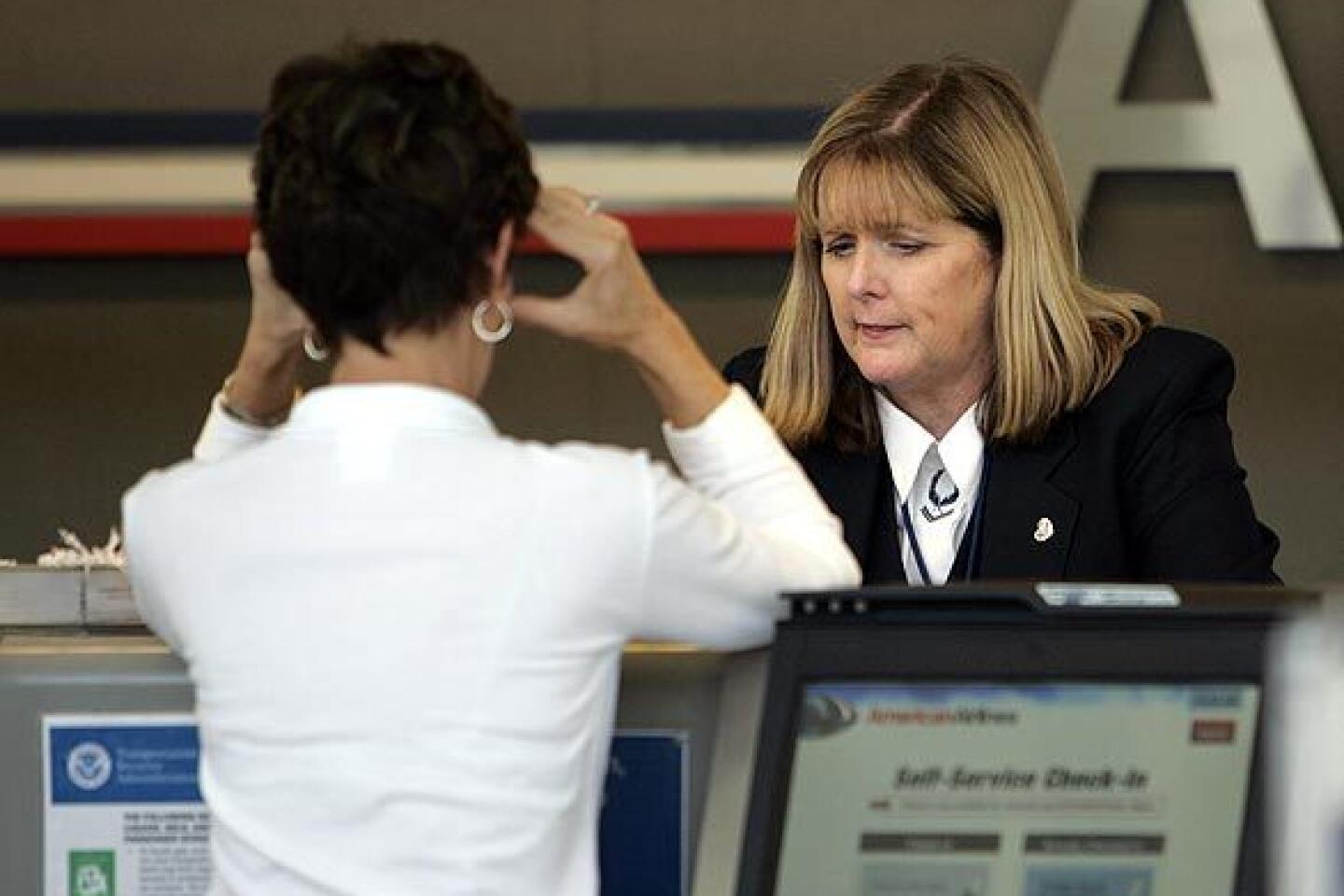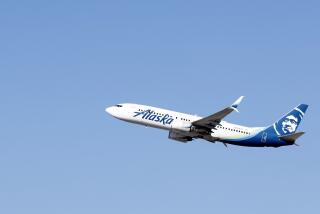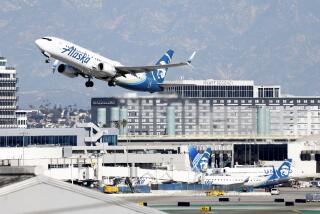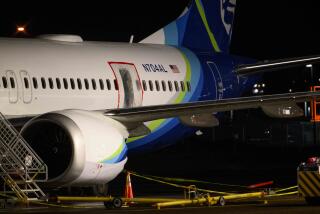Airlines share blame for flight chaos of 2007, report says
WASHINGTON -- The record number of delayed and canceled flights in 2007 can partly be blamed on airlines knowingly scheduling more flights than airports have the capacity to handle, according to a report released today by the Department of Transportation’s inspector general.
Calvin L. Scovel III faulted Northwest Airlines for scheduling 56 departures in a 15-minute window at the Minneapolis-St. Paul airport, about three times the number of planes that the airport has the capacity to handle. He called the chronic over-scheduling of flights during peak hours a misleading practice by airlines looking to book passengers who want the ideal flight time.
His report, released at a House aviation subcommittee hearing on chronic delays, came as American Airlines was canceling more than 1,000 flights to re-inspect its fleet of MD-80 jets.
One in four flights was delayed or canceled in 2007, according to the Bureau of Transportation Statistics. On more than 88,234 flights, affecting about 5.9 million passengers, planes had to taxi on takeoff or landing for more than one hour. Flight cancellations were up 28% in the summer of 2007 compared with the previous year.
A chorus of committee members called the delays “unacceptable” and said more needs to be done by airlines and government to reduce delays.
“Public patience is running short,” said Rep. James L. Oberstar (D-Minn.), chairman of the House Committee on Transportation and Infrastructure.
D.J. Gribben, the Transportation Department’s general counsel, acknowledged that airlines do schedule more flights than they can possibly fly during busy periods, but he rejected a suggestion that the number of flights scheduled during certain periods should be capped on the grounds that it would be inefficient. He said the government is considering increasing fees for airplanes that fly during peak periods and insisted that a market-based approach was needed.
“More needs to be done,” he said. “The cause of congestion at our business airports is not a mystery.”
James C. May, president of the Air Transport Assn. of America, which represents airline companies, said his members hate delays more than anyone else because they cost $9 billion a year and alienate passengers. But he said congestion pricing has never been tried on a national scale.
“We think it’s nothing short of a tax on passengers,” he said.
Scovel blamed other factors, including a ripple effect that magnifies a small number of delays across the country. He faulted air traffic controllers for putting too much space between airplanes on their final approach to an airport, thus limiting how many can land per hour.
A record number of air travelers is putting the strain on heavily trafficked corridors around New York, Chicago and Atlanta, he said, noting that the bottleneck at the three major New York airports accounts for more than one-third of all flight delays around the United States.
The long-term solution, he said, is to expand air traffic capacity, adding that airlines need to adopt industry-wide policies in the short term for what accounts for a “major” delay.
May, the industry spokesman, said he opposes a “hard and fast” timeline for when airlines need to return to the gate if a plane on the tarmac has not taken off, noting that there are different reasons for delays and that different airports have different needs. He called for the government to open more lanes reserved for military flights during peak holiday travel times, as President Bush did during the winter.
Travelers can expect problems to continue through the rest of the year, Scovel said, especially if airlines, airports, and government officials do not do more to reduce congestion. Even then, he said important changes in the offing aren’t scheduled to take effect until after the busy summer travel season.
“The key will be follow-through, execution and implementation,” he said, complimenting airlines and the Department of Transportation for increased cooperation and pledges to reduce congestion but noting that results are what matter.
More to Read
Sign up for The Wild
We’ll help you find the best places to hike, bike and run, as well as the perfect silent spots for meditation and yoga.
You may occasionally receive promotional content from the Los Angeles Times.







